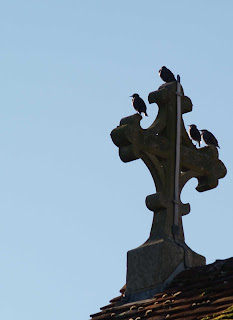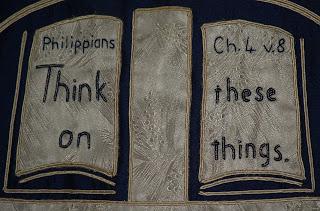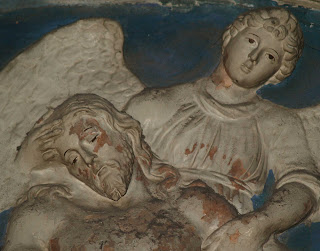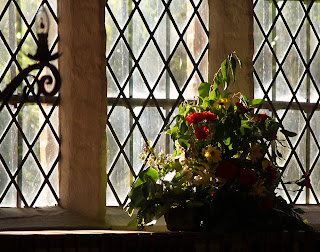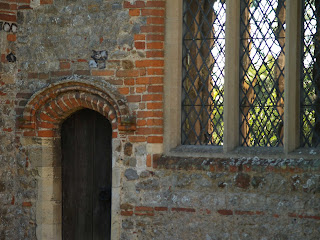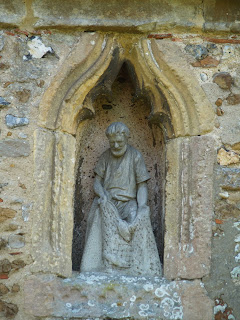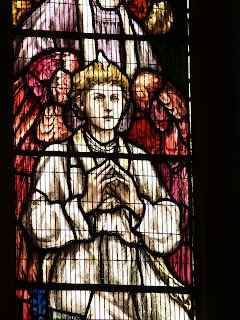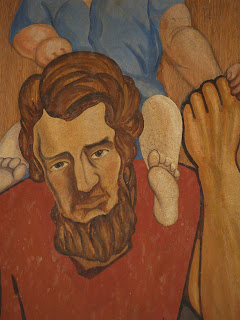This is by way of a response to Jon who thinks I’m too harsh on Adam Smallbone and who argues “Smallbone’s ‘I’m tired of having to tell people what they want to hear all the time’ is something that I would guess most of us think at some stage in our ministry. Moments like those have been the basis for much of the comedy in the series and, in my experience at least, seem an authentic reflection on an aspect of being in ministry. In the context of the story told in the final episode, that comment was then deliberately undercut by the writers in the denouement to the episode where he says exactly what his dying parishioner wants and needs to hear and this is restorative both for the parishioner and himself.”
Trouble is, if that is the truth – and yes, all good art is open to multiple interepretation – but if that is the truth then, for me, the ending is denuded of all value. Let me explain.
I read the climax of the series, when Smallbone is collected by the police and taken off to do his proper work, as a moment of anagnorisis. In other words, in the midst of his drunken gropings, the overflow of self-pity and self-hatred, Smallbone is recalled to his essential vocation, a vocation expressed in ministering with truth and dignity in a sacramental fashion. In other words, there is a break with what has gone before – which, in retrospect, is seen unfavourably. That had great power for me – it is why I liked it.
If, however, Jon’s analysis is true, and Smallbone is still saying ‘exactly what his dying parishioner wants and needs to hear’ then there is a consistency between Smallbone’s behaviour leading up to this moment and what he then does. In other words, there is no anagnorisis, there is no crisis, there is no growth in self-knowledge. How dull!
The trouble is that I really could believe Jon’s analysis of the writers’ intention to be true. That is, I found the ending so wonderful because it undercut what had gone before, not because it was consistent with what had gone before.
Something else needs to be touched on.
The problem is that ‘saying what people want to hear’ is a consistent part of Smallbone’s nature, and it ties in with what I see as a lack of character. A previous moment that I felt was telling was when Smallbone half-apologises to his wife that they have never had children, and the wife responds that she already has one, ie him! Perhaps they should have called the character ‘Adam No-Backbone’ instead.
There is all the difference in the world between refraining from speaking the truth – out of pastoral concern and sensitivity to kairos, say – and speaking what people want to hear. The one is a prudent forebearance that keeps at least one eye on the main purpose, the other is a rootless drifting in the currents of the world. It is because Smallbone had seemed to be so much of the latter kind that I found the ending so wonderful a contrast.
I would not wish to argue, either, that this is a matter of strength of character. Indeed, that is to perpetuate the most fundamental theological error in the programme. God is more than happy to make use of weak vessels to accomplish his own ends, indeed, as St Paul tells us, this is in some ways the essential point in being a Christian. Again, this is what I found so wonderful and true about the ending – a weak man being the means of divine grace.
The trouble with Smallbone is that he lacked a place to stand outside of himself, somewhere that is not comprised of (and compromised by) his own narcissism. He lacked, so it seemed to me, any sense of the otherness of God, of that power greater than himself within which he found his own true calling and nature, which loved him and enabled him to be himself – to precisely not be a false self, presenting what other people wanted to hear. I don’t think it a coincidence that there was so little exploration of worship in the programme – perhaps they couldn’t, as it was a comedy – yet without that, any true presentation of priesthood collapses. I often felt that the programme could have been changed into a non-religious context without any serious alterations of character being required – Smallbone could easily have been a social worker or government bureaucrat, and much of the comedy would have remained.
To put it succinctly, Smallbone had no fear of God in him. That is why I shall continue to see him as the construct of the secular, liberal elite – they have no understanding of the fear of God, no sense of it as a living (and life-giving) reality – and their presentation of the faith shares that failing. They don’t understand it, therefore it doesn’t exist – other than as a quaint delusion shared by the uneducated or mentally deficient. Smallbone is a nice guy, doing his best.
Forgive me, but I believe that there is more to being a Rev. than that.

